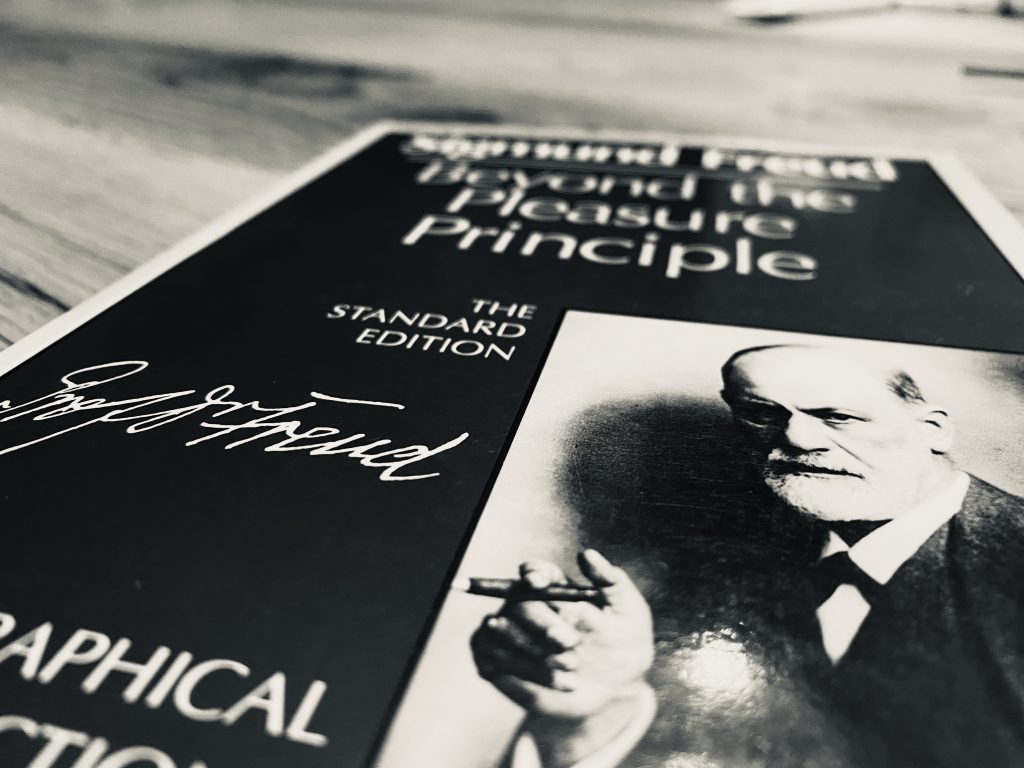The short book (a long essay?) Beyond the Pleasure Principle by Freud was published in 1920, 100 years ago now. To understand Beyond one would need an understanding of what the pleasure principle is and how it works.

When I teach this concept I start by saying the pleasure principle is a motivation within our bodies, a motivation to seek out things that feel good and avoid things that cause us discomfort. The pleasure principle is tied to instincts. When we live according to the pleasure principle we, more or less, obey our instincts. We eat, we sleep, we move around in ways that are fun. When we follow the instructions of our instincts our bodies get a biochemical reward that feels good.
Animals (non-human animals) tend to live their entire lives in accordance with the pleasure principle. Humans, on the other hand, have gone beyond the pleasure principle created “social life,” civilization, culture, society, etc. To live in society we human beings do things that don’t feel very good at the moment, things that violate the pleasure principle’s desire for immediate gratification, and opt into doing things that hopefully create a long-term social situation that is actually more enjoyable than living in what Rousseau called a “state of nature.”
However, humans go beyond the pleasure principle in more ways than creating elaborate social contracts and social institutions that see to the social contracts being carried out.
In Beyond, Freud grappled with many things, but the main thing was what he called the death drive.
Like the pleasure principle, there are many ways to explain the death drive. The most succinct way I explain it is that it is an unconscious desire to destroy our selves and others. Generally, in a society, people are able to keep their death drive somewhat sublimated. Two examples of the death drive being present in a sublimated form would be the desire for a sports team to “destroy” the opposing team and designated places for people to get intoxicated.
For Freud, the enjoyment associated with the death drive is something that went beyond, that went further than the enjoyment tied up in the pleasure principle. In Beyond Freud was attempting to figure out why do people enjoy doing destructive things —things that destroy themselves, others, and their shared life-sustaining environment— so much.
I look around now, today, and it seems to me the death drive is gaining power and speed.
I’m worried.